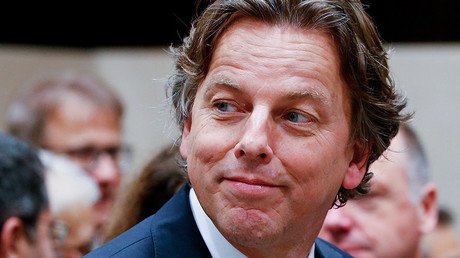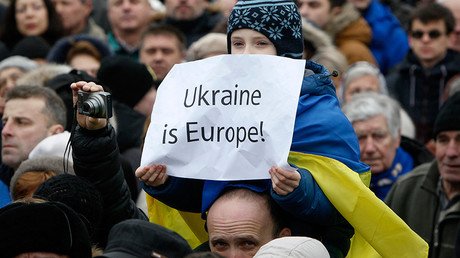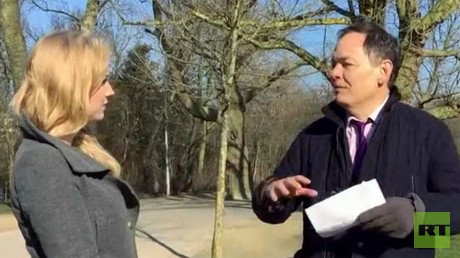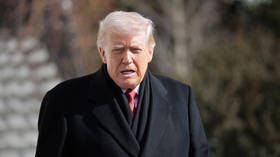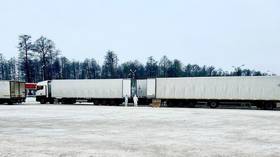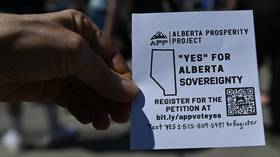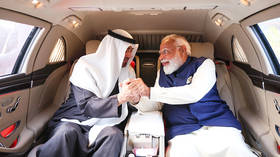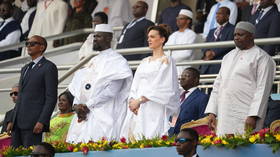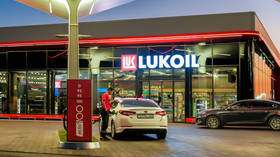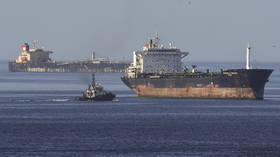Ukraine should never join EU – Dutch Prime Minister
Ukraine should never become a member of the European Union, Mark Rutte, the Prime Minister of Netherlands said in an interview a week before the Dutch referendum on the association agreement between the EU and Kiev.
The Netherlands, which is holding the EU rotating presidency till July, is against Ukraine’s membership in the bloc because “we believe that Ukraine should have good relationships with both with Europe and Russia,” Rutte told NU.nl, stressing that “it cannot be the case if [Ukraine] is in the European Union.”
He also stressed that, “in the long term,” Ukraine should develop good and stable relations with Russia, although he admitted that it is not possible right now “due to the developments in Crimea and eastern Ukraine.”
However, “it is the long-run period that matters,” he emphasized at the same time.
Rutte also drew attention to the fact that Ukraine and Russia historically have close ties. “It is also about the history of Ukraine. If you look at history, Russia also originated in Kiev and other parts of Ukraine,” he said in the interview.
The prime minister also admitted that Russia’s attitude towards Ukraine is at least partly understandable. “You cannot deny that Russia has a right to ask Ukraine to have good relationship [with Russia.] Russia only goes too far when it says that Ukraine may maintain good relationship only with Russia.”
At the same time, he said that, if the Dutch reject the association agreement between the EU and Ukraine, Russia can regard it as a support for its own position that Ukraine should follow a policy focused solely on Russia. “We should not reward such aspiration of Russia,” he said.
Earlier in March, Jean-Claude Juncker also said that Ukraine is unlikely to join the EU and NATO in the near future. “Ukraine will definitely not be able to become a member of the EU in the next 20-25 years, and not of NATO either,” he said in his speech in the Hague on March 3, urging the Dutch citizens to vote for the association agreement at the referendum at the same time.
Association agreement ‘is not about’ Ukraine’s accession to EU
At the same time, Rutte stressed that he supports the association agreement between the EU and Ukraine by saying that it could “greatly benefit” his country as it could provide “stability on the borders of Europe in an unstable world.”
“Europe is prosperous but there is instability on its borders. There are large migration flows, there is terrorism. Stability on the [EU] borders is important,” he told NU.nl adding that the agreement could help to foster “rule of law, development” and fight corruption. He also stressed that free trade between the EU and Ukraine could strengthen the Dutch economy.
Addressing some concerns of the people opposing the agreement, Rutte said that this treaty is not “a step towards [Ukraine’s] accession to the European Union.”
Kiev’s association agreement with the bloc provisionally came into effect on January 1. In order for it to become permanent, the document has to be ratified by all EU’s 28 member states.
In the meantime, a poll conducted by the Dutch television program EenVandaag in January demonstrated that 75 percent of the Dutch voters were against the ratification of the association agreement. Over 50 percent of voters said they would “definitely” vote against it, while another 25 percent of the respondents said they were “likely” to reject it.
Another opinion poll conducted by the Dutch Volkskrant newspaper on March 13, demonstrated that 57 percent of the Dutch still oppose the association agreement.
The referendum, which will be held on April 6, is advisory, thus its results will be non-binding for the government. At the same time, a 30 percent voter turnout is enough for its results to be taken into consideration by the authorities, Dutch media report.
According to the EenVandaag poll, more than half of the voters will certainly go to the polls in April, with another 17 percent saying they will “most likely” do so.
The referendum was triggered by a petition signed by some 450,000 people and launched by a satirical news website called GeenStijl. Under Dutch law, any petition that gains more than 300,000 is enough to trigger such a vote.
Despite the public skepticism about the association agreement, the Dutch PM said he is optimistic about the results of the referendum by saying the he has “great confidence in the Dutch people” and “the outcome of the referendum.”
